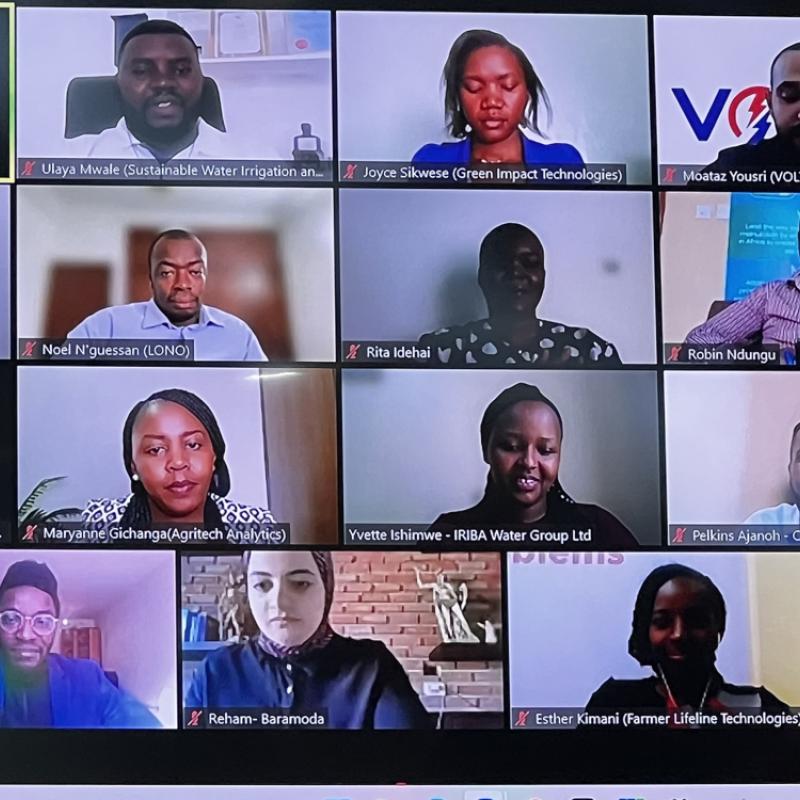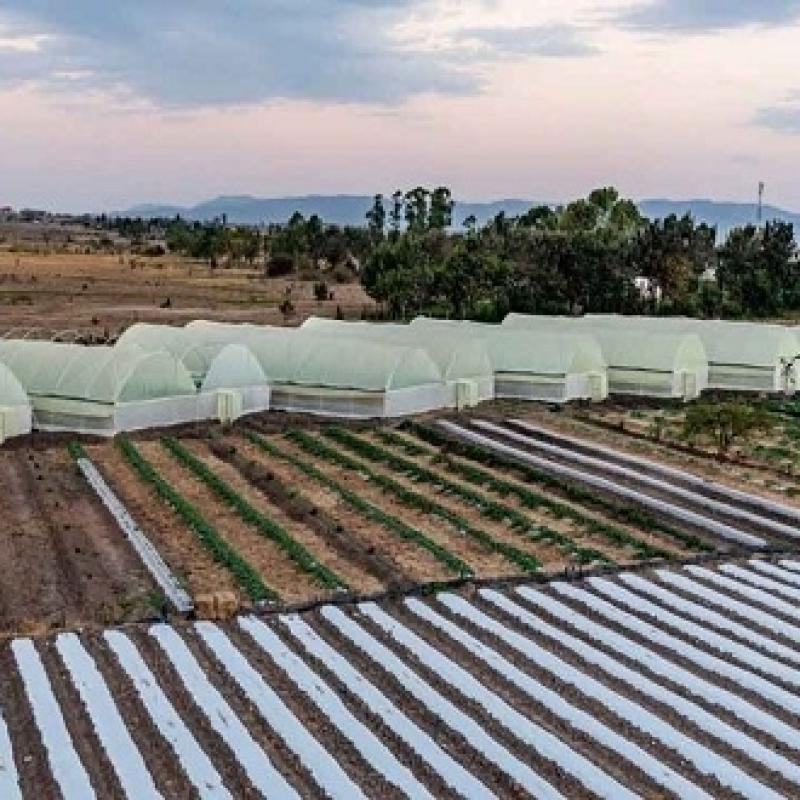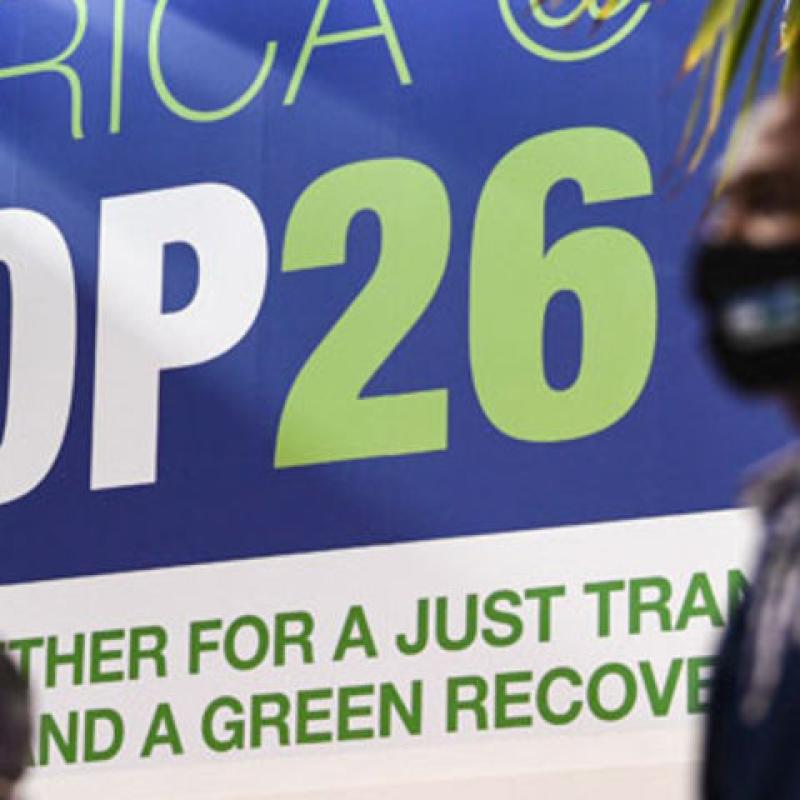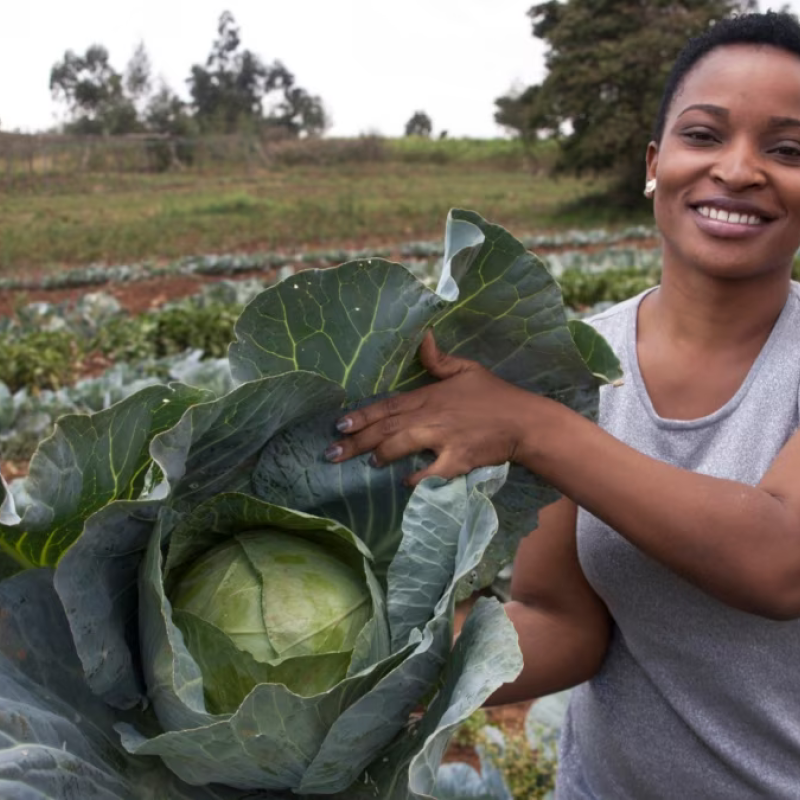
AAAP in the Media
Displaying 1 - 12 of 27
Staple Crops Processing Zone (SCPZ): funding proposal to the Green Climate Fund
The target countries of Democratic Republic of the Congo, Ethiopia, Togo and Zambia are regions experiencing high deforestation, poor agriculture yield and increasing poverty exacerbated by climate change. Across all four countries, climate variability and change has become a major threat to sustainable development.
As part of efforts to address these challenges, the four countries are implementing national projects to establish Staple Crops Processing Zones: initiatives designed to concentrate agro-processing activities within areas of high agricultural potential to boost productivity and integrate production, processing and marketing of selected commodities. These initiatives are purposely built shared facilities, to enable agricultural producers, processors, aggregators and distributors to operate in the same vicinity to reduce transaction costs and share business development services for increased productivity and competitiveness.
Developing adequate infrastructure (energy, water, roads, ICT) in rural areas of high agricultural potential should attract investments from private agro-industrialists/entrepreneurs to contribute to the economic and social development of rural areas.
The Staple Crops Processing Zone (SCPZ) development program aims to transform agriculture production in regions experiencing high deforestation, poor agriculture yield and increasing poverty exacerbated by climate change, including the target countries of Democratic Republic of the Congo, Ethiopia, Togo and Zambia.
The specific objectives of SCPZ are: (i) improving access to seed capital through grants and matching grants; (ii) supporting productivity enhancement through introduction of new technologies and agricultural inputs; (iii) improving access to infrastructure by supporting investment; (iv) improving the capacity of producer cooperative through training and TA, especially for targeted women and youth groups; (v) facilitating market linkages throughout-growers’ schemes; and (vi) facilitating on-farm value addition by targeting limited value chains and linking farmers to the supply chain.
GCF financing is sought to strengthen one of the project components of SCPZ in Democratic Republic of the Congo, Ethiopia, Togo and Zambia.
- Through the technical assistance program, AAAPwill accelerate the mobilization of adaptation finance.
- Increased carbon sinks in soil and above-ground biomass
- Reduced carbon dioxide/other greenhouse gas emissions from farms due to efficient energy use
- Increased renewable energy production from biomass, either as a substitute for fossil fuels or as a replacement for burning of fuel wood or crop residues
- Fewer incidents of bare soils, reduced soil erosion and increased water percolation.
- Reduced emissions through low-emission energy access and power generation
- Reduced emissions due to improved waste management, including by recycling waste and use of waste in biogas systems
- Reduction of emissions from land use and deforestation, and enhancement of forest carbon stocks.
-
Increased resilience, including to extreme events such as droughts and floods, and enhanced livelihood of about 55% of highly vulnerable people and communities
-
Increased access to better health and wellbeing, and food and water security to over 100,000 beneficiaries, in addition to provision of alternative sources of energy
-
Increased resilience of ecosystems and ecosystem services in forests and savannas
USD 427 million:
- Funding proposal to GCF seeking USD 174.02 million (USD 130.02 million grant and USD 44 million loan)
- AfDB providing USD 111.2 million (USD 85.2 million loan and USD 26 million grant)
- Co-financiers:
European Union, USD 10.4 million (grant)
BOAD, USD 17.6 million (loan)
Korea Exim Bank, USD 50 million (loan)
Korea Fund, USD 5 million (grant)
Islamic Development Bank, USD 31 million (loan)
Governments of target countries, USD 28 million (counterpart financing)
State and Trends on Adaptation Report 2021: Africa
Adaption is crucial for the continent that is the most vulnerable to climate change, but adapting successfully will bring enormous benefits.
Climate risk regulation in Africa’s financial sector and related private sector initiatives
Extreme weather phenomena such as rising temperatures and the increasing frequency of droughts and floods are affecting lives and livelihoods in Africa. According to the Global Climate Risk Index 2021,1 five African countries ranked among the 10 countries most affected by extreme weather in 2019: Mozambique (first), Zimbabwe (second), Malawi (fifth), South Sudan (eighth), and Niger (ninth).
State and Trends in Adaptation Report 2022
A year on from State and Trends in Adaptation 2021 (STA21) which set out our blueprint for adaptation action, the evidence of the impact of deepening, growing climate change daily invades our screens.
2022 has seen record-breaking extreme weather globally, with mighty floods, vast wildfires, enduring heatwaves, and drought on every continent. More frequent and intense extreme weather and climaterelated events are creating new and increasing risks everywhere.
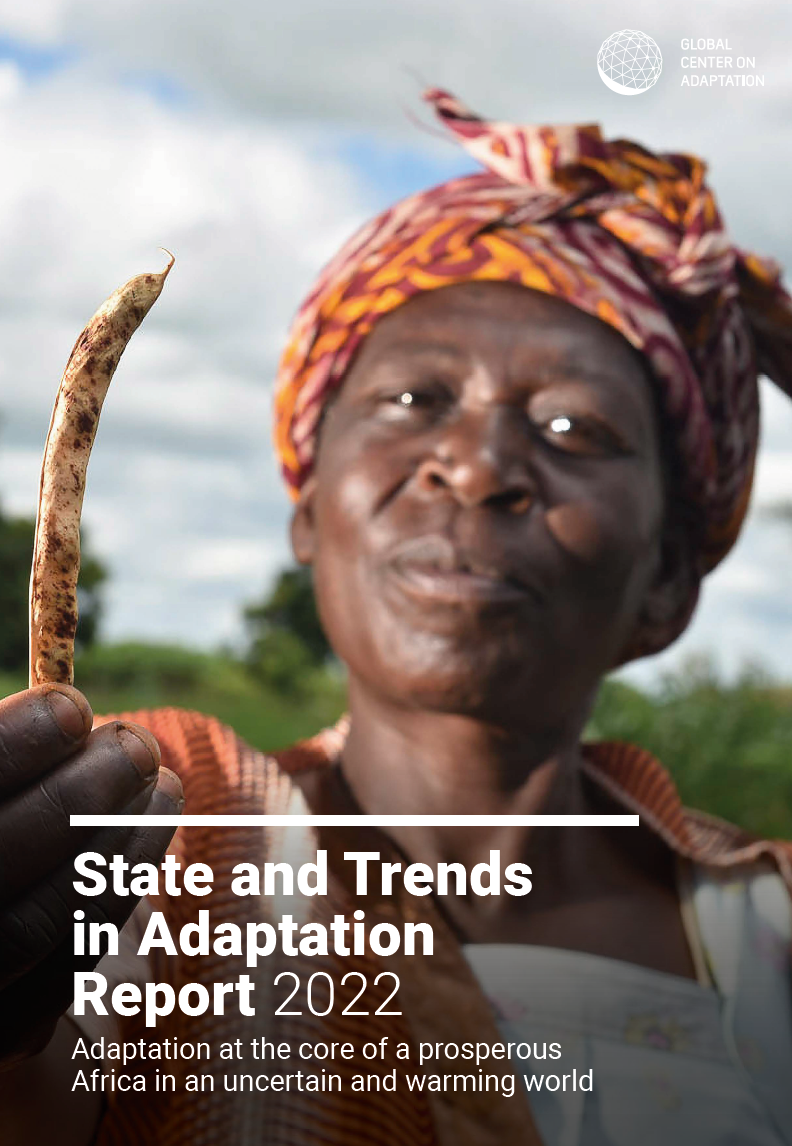
Africa Adaptation Dialogue: implementing the vision at the Africa Climate Week
What: Africa Adaptation Dialogue: implementing the vision
When: 31 August 09:30 - 10:30 CAT
Where: Libreville, Gabon
Who: Global Center on Adaptation; Africa Adaptation Initiative (Chaired by Gabon); African Development Bank
Despite contributing the least to global warming, Africa finds itself on the frontline of the climate emergency, with the impacts of external shocks exacerbating these vulnerabilities. Indeed, large portions of Africa—particularly the drylands that cover three-fifths of the continent—are warming at a rate twice the global average, putting half a billion people at risk.
Chaired by Gabon, the Africa Adaptation Initiative (AAI) aims to strengthen collaboration on adaptation across the continent. To implement this vision, the Global Center on Adaptation and the African Development Bank have jointly developed the Africa Adaptation Acceleration Program – AAAP. This Africa-led, Africa-owned response is mobilizing $25 billion for climate adaptation investments in the continent over five years. This event will review progress of the AAAP and how it is contributing to narrowing the finance gap, thus accelerating the implementation of AAI.
Program
- Welcome Remarks by the Moderator
Davinah Milenge Uwella – Principal Programme Coordinator, African Development Bank
- Opening Video
- Opening Remarks
Dr. Kevin Kariuki – Vice President, Power, Energy, Climate Change and Green Growth, AfDB
- Framing remarks: The Africa Adaptation Initiative and the AAA
Tanguy Gahouma-Bekale – Special Advisor to His Excellency Ali Bongo Ondimba, President of the Gabonese Republic, Permanent Secretary of the National Climate Council
- The AAAP as the vehicle to implement the AAI vision
Prof. Anthony Nyong – Senior Director, and Africa Regional Director, Global Center on Adaptation
AAAP voices from the field
- AAAP partners and beneficiaries
Moderated discussion with participants
- Wrap up by the Moderator
Direct Access Modality to access the Green Climate Fund
Africa is under-served by adaptation finance. Africa received USD 7.9 billion of an annual average of USD 46 billion in adaptation finance for 2019 and 2020. There is a large disparity between climate finance pledged, finance approved, and finance disbursed by the multilateral climate funds. As of January 2022, only 9.23% of global climate financing was earmarked for sub-Saharan Africa for adaptation purposes. Almost one third of the Green Climate Fund’s (GCF's) Direct Access Entities (DAEs) are in Africa, but only 11 out of 54 countries have at least one national accredited entity. DAEs are only accredited for projects with budgets below USD 50 million and are therefore limited in their ability to access funding for larger projects.
This project will develop a concept note as a starting point for a full funding proposal to the GCF. To achieve this, actions will include a desk review of national climate-related development strategies and reference documents in the target country; identification of a promising project idea, in close collaboration with relevant stakeholders; and facilitation of a consultative workshop to discuss the project’s rationale, main intervention areas and implementation arrangements.
Through the Technical Assistance Program (TAP), the Global Center on Adaptation (GCA) will accelerate the mobilization of adaptation finance. Through the direct access modality, GCA will enhance local capacity to formulate robust concept notes for funding consideration by the Green Climate Fund.
AAAP will support the climate risk assessment studies requested by the GCF.
- Four robust project/program concept notes and pipeline developed, for Burkina Faso, Democratic Republic of Congo, Niger and Nigeria.
- For the Democratic Republic of Congo, new sources of climate finance for adaptation and resilience investments identified.
- Development of a roadmap with key actions to prepare the full funding proposal, including the necessary complementary studies, the evaluation of the cost of these studies and the cost of the full funding proposal.
- Relevant initiatives or projects planned or underway and implemented in the project intervention areas
- Development of a portfolio of paradigm-shifting adaptation projects and programs, i.e., development of concept notes, supporting and enhancing funding proposals.
- Building capacities for adaptation finance planning, mobilization and implementation, i.e., Climate Public Expenditure Reviews.
- Direct Access strengthening with the aim to diversify and to increase the delivery channels, i.e., New Accreditation and Accreditation upgrades.
DRC: USD 58.75 million
Burkina Faso: USD 40 million
Niger: USD 50 million
Nigeria: USD 50 million
Total: USD 198.75 million
Africa Adaptation Acceleration Program showcases African youths driving climate innovation
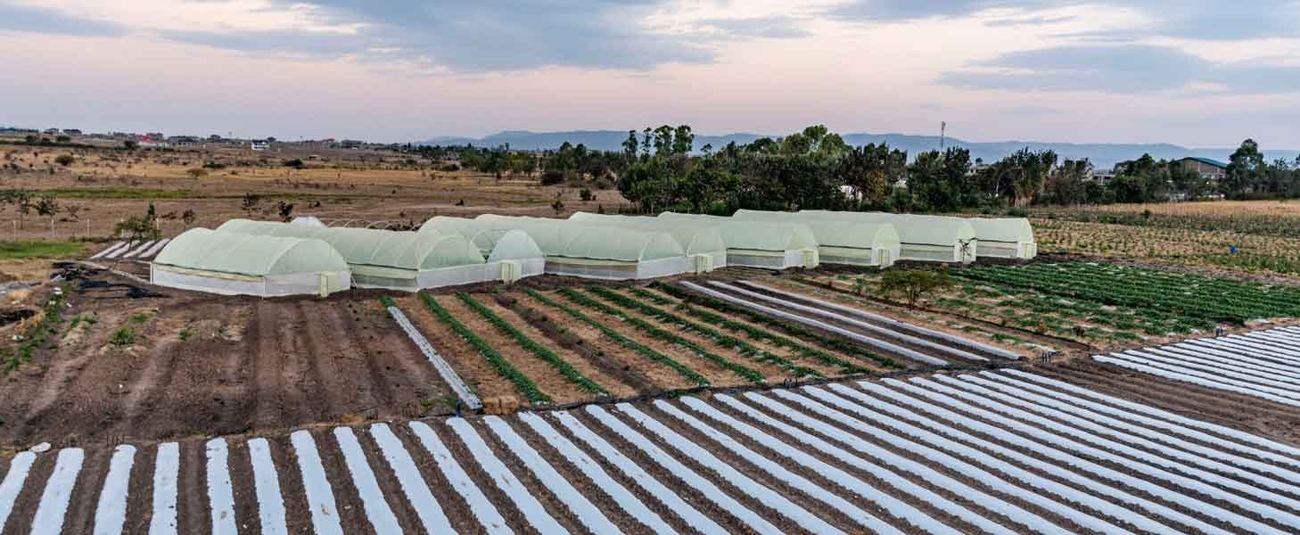
The Africa Adaptation Acceleration program (AAAP) – a joint initiative of the African Development Bank and the Global Center on Adaptation – recently showcased its initiative to harness the dynamism and leadership of Africa’s youth to drive climate adaption innovation.
On the side-lines of the recent 3rd Gobeshona Global Conference(link is external), AAAP brought together participants in its YouthADAPT program to share their experiences with the program as well as strategies to scale up youth-led approaches to adaptation
In his opening remarks, Dr. Kevin Kariuki, African Development Bank Vice President for Power, Energy, and Climate & Green Growth underscored young people’s integral role in Africa’s sustainable development.
“Youth form the backbone of Africa’s population, constituting over 60% of the population. The continent’s sustainable development hinges on harnessing this demographic dividend,” Kariuki said. “The AAAP, through its YouthADAPT pillar, has so far supported 35 youth-led enterprises in 14 African countries with $3.5 million to drive climate actions in sectors such as agriculture, waste management, renewable energy, water and sanitation,” Kariuki added. YouthADAPT is one of AAAPs four pillars for accelerating climate adaptation.
Caroline Mukuhi Mwangi, founder of Kimplanter Seedling(link is external) and Nurseries Limited, said her company was already seeing the benefits of participation in the program. Kimplanter provides drought resistant seedlings that boost food production and food security in Kenya.
Mwangi said, “We have ventured into new markets in semi-arid regions and expanded our seedling varieties, increasing our revenue by 36% as a result of AAAP support. Our customer base has also grown from 8,000 to 16,000 farmers and we have increased our staff from 17 to 32, all of whom are women or youth.”
Aramide Abe, the Program Lead of Jobs for Youth & Entrepreneurship at the Global Center on Adaptation(link is external) confirmed that participating enterprises have already begun to show results. She said some have seen revenues rise by up to 50 percent. A fifth have ventured into new markets and have raised over $106,000 in additional funding from different sources.
Juveline Ngum, the founder of Bleaglee Waste Management Limited, a Cameroon-based start-up company using drone technology to tackle waste disposal, also stressed the benefits of participating in YouthADAPT.
“We have expanded our waste disposal management solution from west Cameroon into Douala, effectively using drones to detect clogged drainages and utilizing data for demand driven waste management,” Ngum said. Now, we aim to expand across national borders into Dakar, Senegal.”
Noël N'guessan’s Cote d’Ivoire-based company, LONO(link is external) – a winner of the 2022 YouthADAPT challenge – has patented technology for the production of organic fertilizer. The company has also introduced modular and mobile bio digesters for the agri-food sector. Biodigesters use microbes and other bacteria to break down organic waste including fat, greases, and even animal manure.
Still, Nguessan said challenges remained. “The cost of prototyping hardware equipment can be prohibitively high, resulting in lengthy project development cycles, “he said. He pointed to financial management training as vital for youth-led businesses.
The session also featured presentations by African Development Bank partners and other global organizations that have rolled out similar initiatives to YouthAdapt.
Sandra Simbiri, Program Specialist at UNICEF’s Generation Unlimited(link is external), said:
“Supporting entrepreneurs through STEM principles is key to preparing the young for technological innovations.”
Alfred Asiko, Senior Market Engagement Manager for the ClimateTech Programme at GSMA(link is external), a mobile technology association, said it has played a role in empowering youth to deploy such technologies as the Internet of Things, artificial intelligence and blockchain to tackle climate challenges.
“Through our innovation fund, we offer grants to climate startups, with a focus on supporting resilient solutions that utilize frontier technologies. We also provide skills development and training to help entrepreneurs succeed in scaling their innovations,” Asiko said.
He said that venture capital (VCs) firms had a critical role to play. ”We need to see more VCs stepping up and taking over from development finance institutions (DFIs) in providing financing and support to youth-led businesses,” he added.
YouthADAPT targets reaching 10, 000 African youth-led enterprises by 2025, promoting innovation and inclusive growth for young people in climate resilient jobs and through youth enterprise development. The AAAP’s other three pillars are Climate-Smart Digital Technologies for Agriculture and Food Security; the African Infrastructure Resilience Accelerator and the Innovative Financial Initiatives for Africa
The third annual Gobeshona Global Conference, organized by the International Centre for Climate Change and Development, took place virtually from 10-16 March 2023. It focused on monitoring Locally- Led Adaptation (LLA) and resilience.
20 young African entrepreneurs bag $100,000 each to boost their climate adaptation businesses
Programme Showcases African youths driving climate novelty
UK gives Africa $197 million to mitigate climate change
African Development Bank-supported Cameroonian start-up provides low-cost greenhouses, sustainable solutions to boost livelihoods
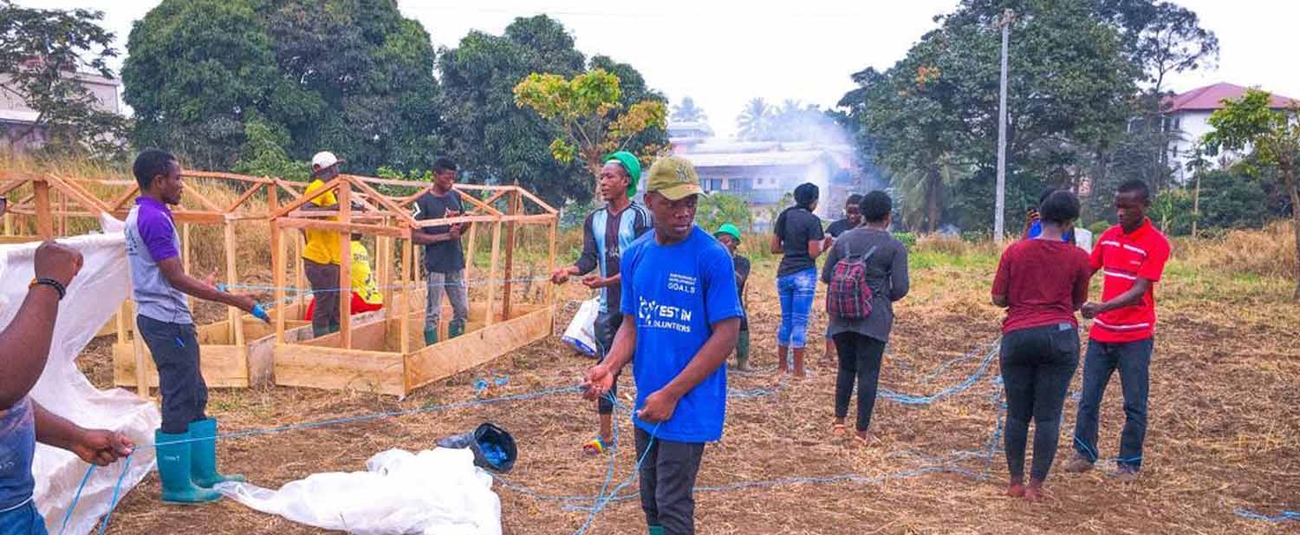
A youth-led agricultural start-up is supporting farmers in climate-vulnerable Cameroon to produce crops sustainably year-round using low-cost greenhouses and solar-powered irrigation.
Mumita Holdings is a beneficiary of the African Development Bank’s investment into the channelling of private capital to young African entrepreneurs, who are seen as critical to unlocking innovative solutions to climate change and the continent’s energy transition.
Tackling climate change is an urgent global priority and perhaps more critical in Africa. The continent is home to nine of the ten countries most vulnerable to climate change worldwide. In response to this pressing challenge, the African Development Bank Group has committed to mobilize $25 billion in climate finance by 2025.
Mumita’s CEO, Matiedje Nkenmayi Gislaine, was among 15 winners of the 2021 African Youth Adaptation (YouthADAPT) Solutions Challenge, organized annually by the bank and the Global Centre on Adaptation as part of their joint Africa Adaptation Acceleration Program (AAAP). Mumita received a development grant of $100,000 and participated in a 12-month business accelerator program to scale up the business, create more jobs and expand its impact.
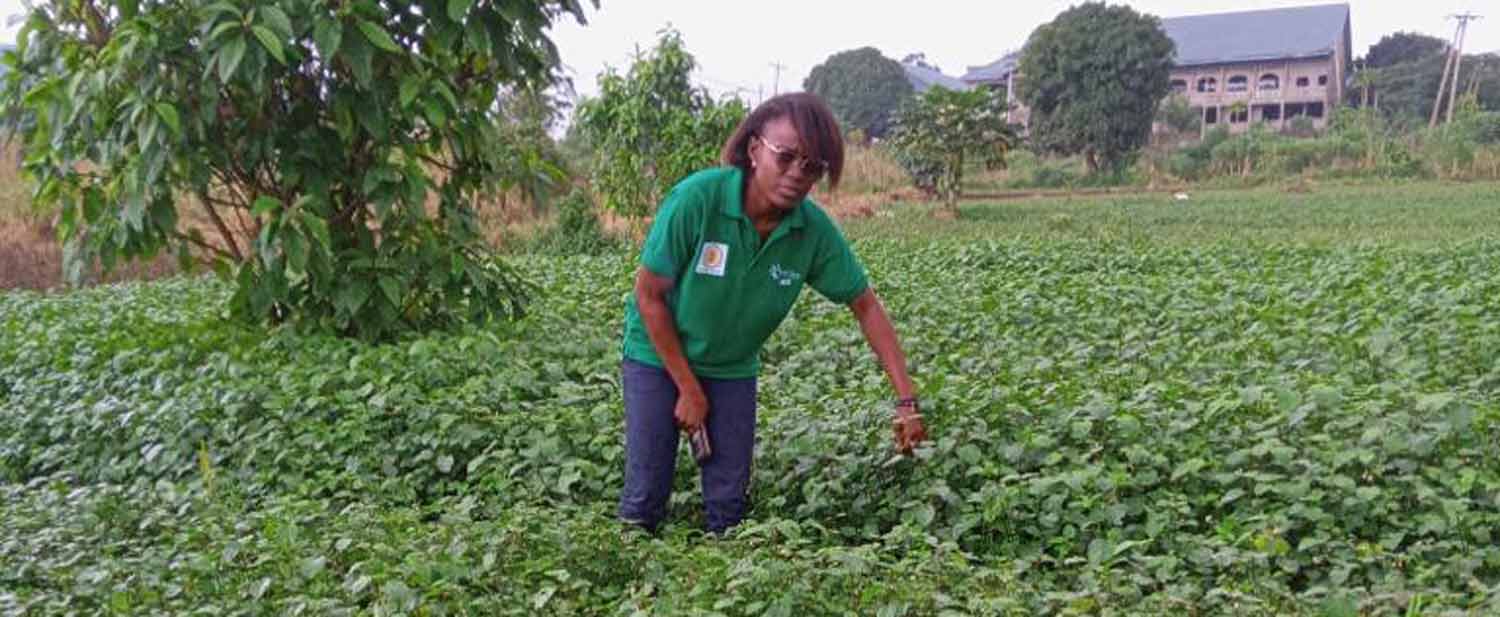
Mumita supports farmers in climate-vulnerable Cameroon to produce crops sustainably year-round using low-cost greenhouses and solar-powered irrigation. The firm mainly targets rural women farmers that cultivate African indigenous green leafy vegetables such as ndole and eru, or bitter leaf and wild spinach. These vegetables are an important source of revenue and nutrition. Demand for these leafy greens and tubers has increased, but production has not kept pace. At the same time, climate change impacts, including erratic rainfall patterns, have also hurt yields.
Mumita provides low-cost greenhouses that facilitate the year-round cultivation of vegetables. The greenhouses are made from materials such as wood, cement and mesh that are sourced locally from farmers. This has reduced the cost of building a greenhouse from $2,500 to about $500. The cost reduction has boosted yields and earnings. Mumita has also partnered with French company ASAP PROS1 to brand vegetable packaging with its own label.
For Nkenmayi, winning the YouthADAPT Challenge translated into multiple benefits for her business and rural communities in Cameroon.
“YouthADAPT funding has enabled us to construct two steel greenhouses in two cooperatives, as well as 10 wooden greenhouses, which has helped improve the capacity of vegetable nurseries from 1,500 seedlings to 25,000 seedlings,” Nkemanyi said. “We have also set up a processing unit, which can transform 1 tonne of dried vegetables per week, up from an initial 100 kg. We have also trained over 2,300 farmers in 10 villages in the southwest region, Mbanga in the Littoral region, Bamenda in the Northwest, and Boumnybel,” she added.
Currently, Mumita can supply indigenous dried vegetables in most of Cameroon but aims to expand coverage within and into other parts of sub-Saharan Africa.
The African Development Bank recognises the critical role of private investment, in closing financing gaps to drive green growth and build climate resilience. In line with this commitment, the bank is focusing on Mobilizing Private Sector Financing for Climate and Green Growth in Africa as the central theme of its 2023 Annual Meetings scheduled for 22-26 May in Sharm El Sheikh, Egypt
